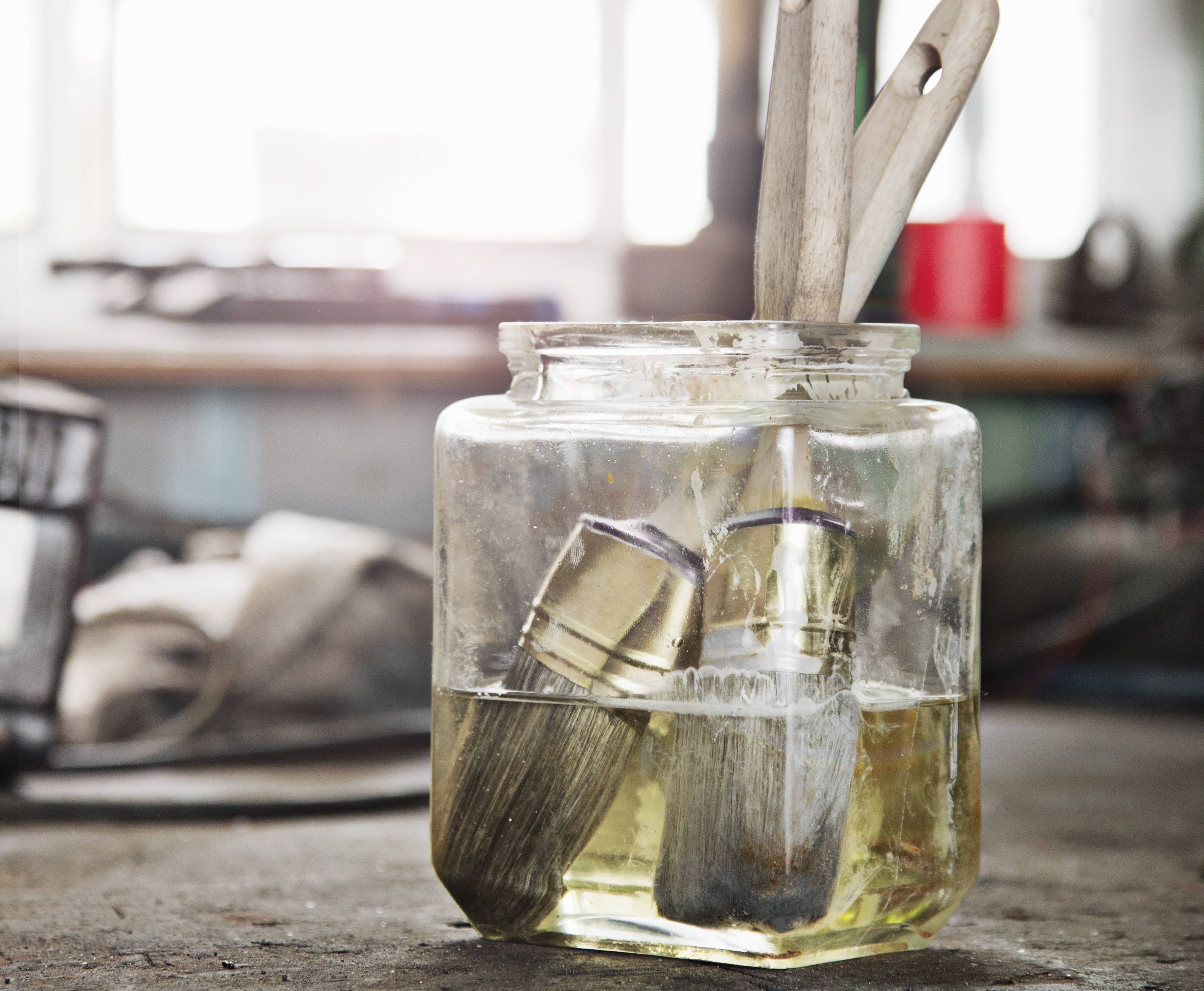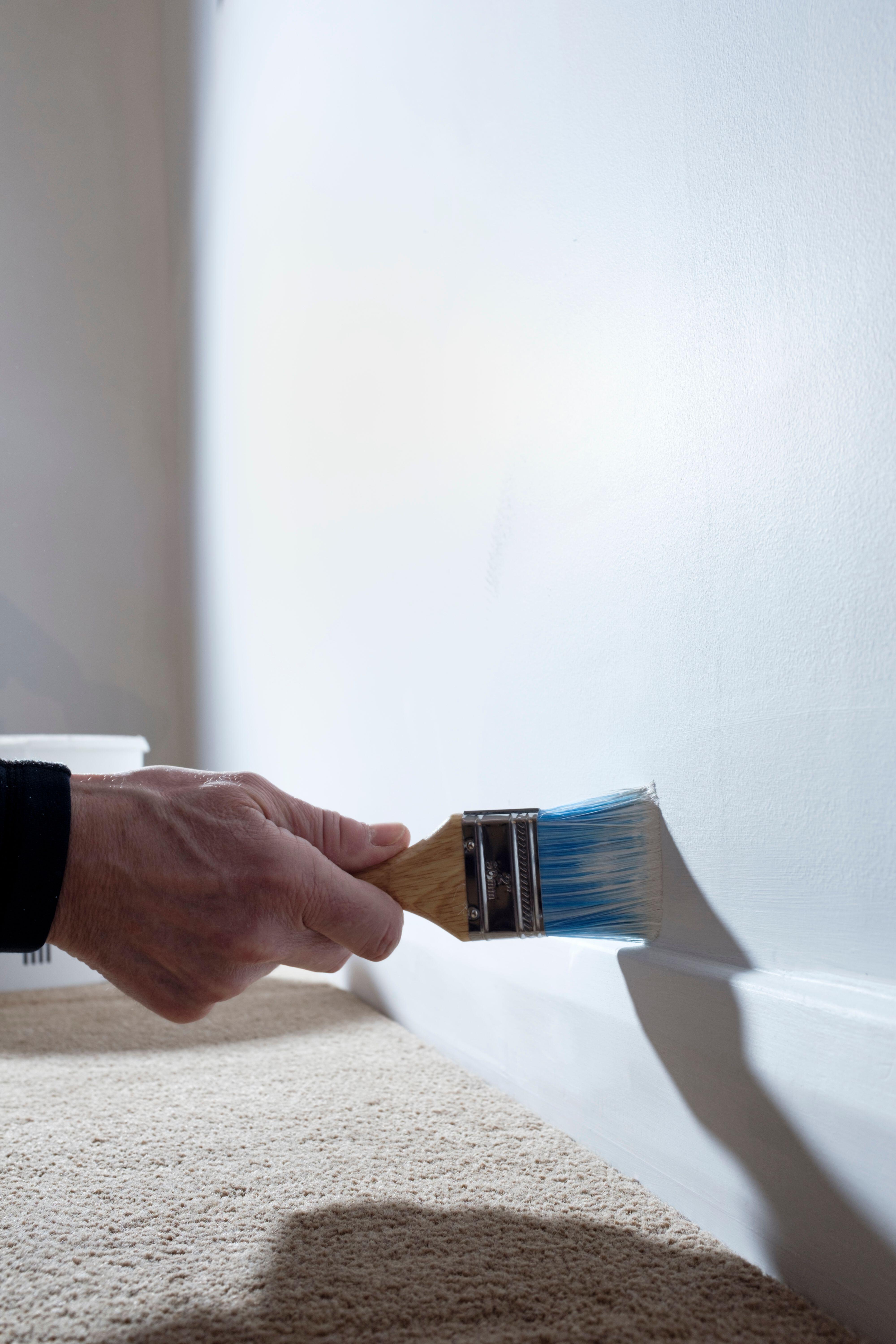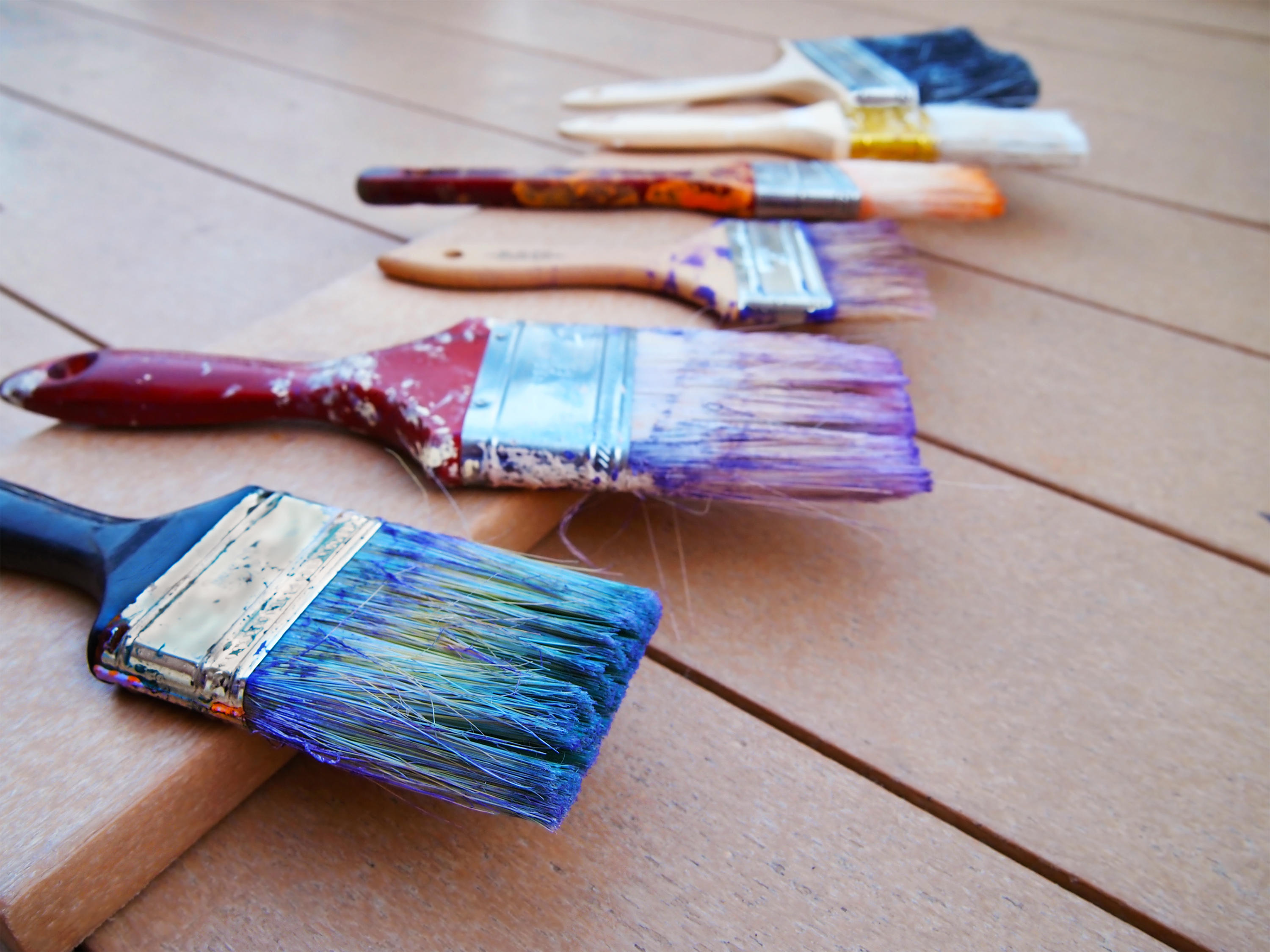It's true – you should never rinse paint down the sink! This is how to safely dispose of paint water instead
The sink is the most instinctive place to turn when cleaning your paintbrushes, but doing so could cause serious damage...


The Livingetc newsletters are your inside source for what’s shaping interiors now - and what’s next. Discover trend forecasts, smart style ideas, and curated shopping inspiration that brings design to life. Subscribe today and stay ahead of the curve.
You are now subscribed
Your newsletter sign-up was successful
We all know how important it is to properly clean our paintbrushes, but do you pay attention to where you do so? For the majority of us, the most instinctive place is the sink, where hard-wearing porcelain allows you to quickly rinse your brushes while also minimizing mess. According to experts, however, that's the last place you should turn.
Surprised? We were, too. I'll be the first to admit that it's exactly what I've been doing for years. Frankly, we're proud of you for going through the effort of washing those brushes in the first place. After spending hours redecorating or perfecting that DIY project, mustering up the courage to clean up afterward is commendable - the task it's an entire mission in itself. Of course, the first place you're going to turn to is the sink. But, as it turns out, doing so not only risks damaging your septic system but can also pollute your groundwater supply, too.
To find out how to safely dispose of that toxic paint water we asked some professional decorators for their solutions, and it turns out they know a thing or two about cleaning up after those all-important paint ideas. Here's what they had to say.
Can I rinse paint brushes in the sink?

When the time for the almighty clear-up rolls around, we all know that cleaning paintbrushes should be the first on the agenda to prevent the paint from hardening and rendering the brushes useless. As Lane Ball of Zibra Brushesexplains: 'When painting with latex paint, it's critical for the longevity of your paintbrush to thoroughly clean with water, dish soap, and a brush comb.'
Rinsing them under the faucet in your kitchen or bathroom sink, however, should be out of the question. 'Most don't realize cleaning paint brushes in the sink is not advisable,' Lane continues. 'This is because paint can clog the septic line and the chemicals from the paint can damage the biological system in your septic tank and pollute the ground.'
To avoid a costly plumbing bill or worse, serious environmental harm, you should steer clear of the sink or any outside taps when it comes to cleaning your brushes.
Where should you wash paint brushes instead?

With the sink out of bounds, you're probably wondering where to turn. Well, the most basic (and slightly rudimentary) solution is a bucket. 'Wash the brush using a five-gallon bucket filled with water, add dish soap, and then use a second five-gallon bucket for rinse water,' advises Matt Kunz, President of Five Star Painting, a Neighborly company. (Of course, this all depends on the type of paint finish you're decorating with, since you can only use soapy water to clean off water-based paint.)
The Livingetc newsletters are your inside source for what’s shaping interiors now - and what’s next. Discover trend forecasts, smart style ideas, and curated shopping inspiration that brings design to life. Subscribe today and stay ahead of the curve.
The next predicament to overcome is what to do with the paint water itself. According to Matt, 'you can then pour the dirty water into a large container which can be emptied at an approved site'. To do this, you'll need to check with local resources to find where to dispose of contaminated water, usually at a nearby waste center.
If you don't have a waste management or paint recycling center nearby, you can soak the contaminated residual paint water up instead. 'You can place sawdust, cat litter, or even small pieces of cardboard in the bucket to absorb the liquid,' explains Lane. 'You can then deposit the absorbed remnants in a trash bag and dispose of it properly.'
During your painting project, you might keep your brushes in a jar of water or a solution of mineral spirits to prevent the paint from drying out on the bristles. You should treat this the same way, too.
To make life easier and reduce the amount of water needed to clear up, Matt's simplest instruction to take away is to minimize the amount of paint on the brush during painting. 'Do this by pushing the side of the brush against the inside of the rim of the paint can, then use rags or paper to wipe down the brush and dispose of those normally,' he says.
If you want to keep your paintbrushes in perfect condition, avoid any costly plumbing bills, and keep environmental hazards at bay, always absorb your paint water before throwing it away. It's a simple trick that could save some serious repercussions...

Lilith Hudson is a freelance writer and regular contributor to Livingetc. She holds an MA in Magazine Journalism from City, University of London, and has written for various titles including Homes & Gardens, House Beautiful, Advnture, the Saturday Times Magazine, Evening Standard, DJ Mag, Metro, and The Simple Things Magazine.
Prior to going freelance, Lilith was the News and Trends Editor at Livingetc. It was a role that helped her develop a keen eye for spotting all the latest micro-trends, interior hacks, and viral decor must-haves you need in your home. With a constant ear to the ground on the design scene, she's ahead of the curve when it comes to the latest color that's sweeping interiors or the hot new style to decorate our homes.